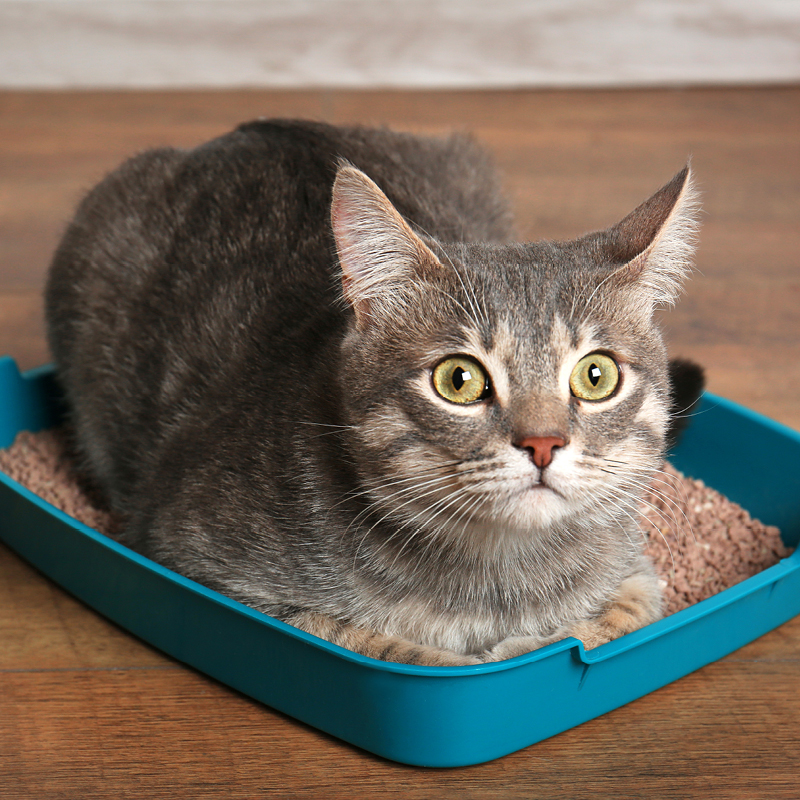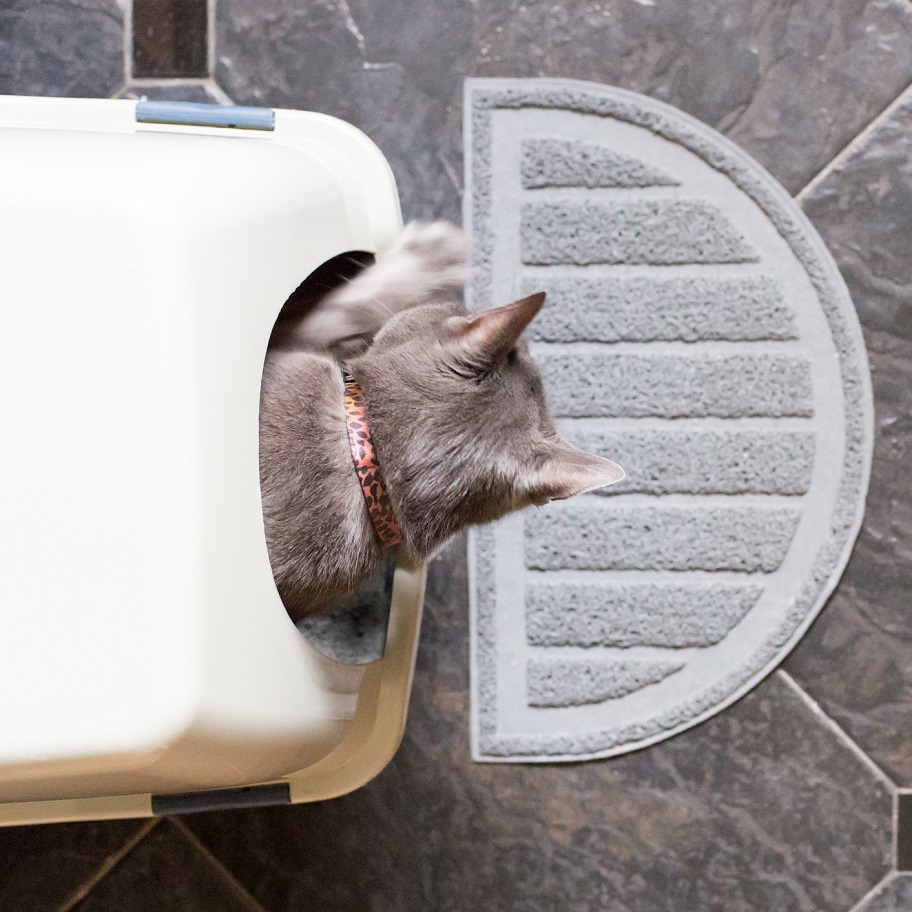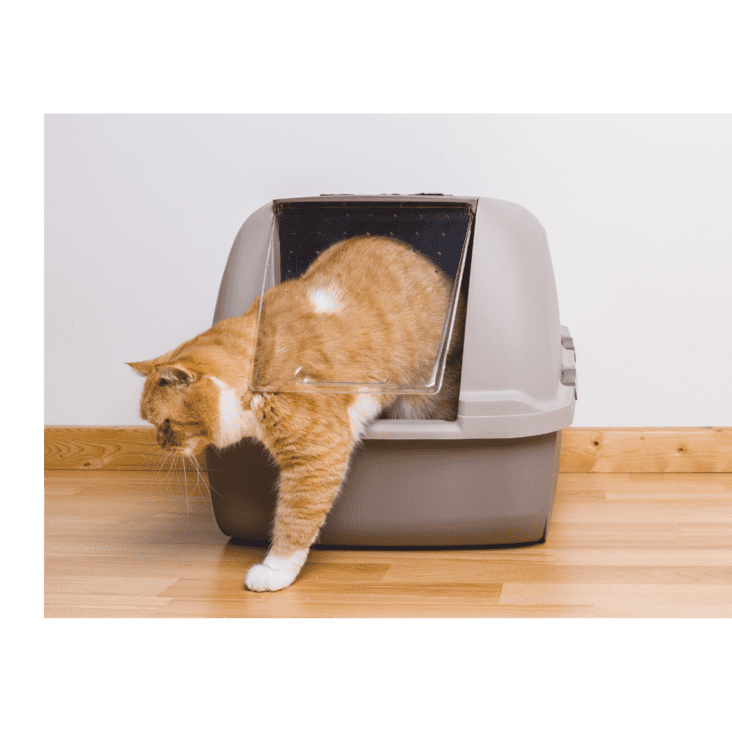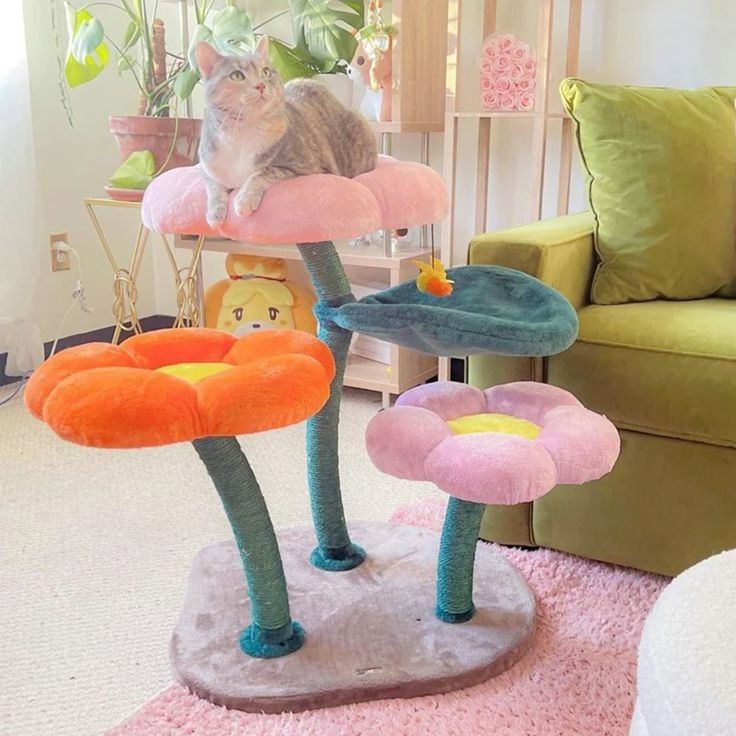Understanding Litter Box Behavior in Cats
Understanding why cats miss the litter box is key to solving the issue. Cats are naturally clean animals and usually have no trouble using their litter box correctly. Problems start when something disrupts this routine behavior. Here are reasons why your feline friend might avoid the litter box.
Medical Conditions
A cat that suddenly stops using the litter box may be sick. Urinary tract infections, kidney issues, and diabetes can cause this change. Conditions like arthritis may make accessing the litter box painful.
Cleanliness Concerns
Cats hate dirty litter boxes. If it’s not scooped regularly or there’s a lingering smell, they may refuse to use it. It’s important to clean the box daily and change the litter frequently.
Stress and Behavior
Changes in the home, like new pets or family members, can stress your cat. This stress can make them avoid the litter box. Providing a calm and secure environment can help.
Placement and Privacy
Cats prefer a quiet and safe spot for their litter box. If the box is in a noisy or busy area, they may look elsewhere. Ensure the litter box location feels safe to your cat.
Box Size and Style
If the litter box is too small, large, or has a cover, your cat might not like it. They need space to move and turn around comfortably. Choosing the right-sized box is crucial.
Effects of Spaying and Neutering
Unneutered cats might spray to mark territory, missing the litter box. Spaying or neutering can reduce this behavior. It’s generally a good choice for your cat’s health and habits.
Addressing these factors requires understanding your cat’s preferences and behavior. Regular vet checks can rule out medical issues. Pay attention to your cat’s responses to their litter box setup. With the right approach, you can solve most litter box avoidance problems.
Medical Reasons for Litter Box Avoidance
When a cat starts to avoid the litter box, it’s important to consider potential medical issues. Cats are usually very good at using their litter boxes, but health problems can disrupt this instinctive behavior. Here are a few of the most common medical reasons why a cat may start to miss the litter box:
Urinary Tract Issues
Cats with urinary tract infections (UTIs) or other urinary system diseases may find using the litter box painful. To avoid pain, they might choose different spots that don’t remind them of the discomfort. Symptoms can include frequent attempts to urinate, crying out in pain, or blood in the urine.
Kidney Problems
Issues with kidneys, such as kidney stones or chronic kidney disease, can lead to more frequent urination. A cat might not make it to the litter box in time or may start to associate the litter box with the urgency and discomfort of needing to urinate often.
Diabetes
Diabetes can cause increased thirst and urination in cats. This can overwhelm a cat’s normal litter box routine, leading to accidents outside the box due to the need to urinate more frequently.
Arthritis
For older cats, arthritis can make climbing into a litter box painful. Higher sides which once were no issue might now present a barrier. Cats with arthritis could also experience difficulty in maintaining the squatting position required for proper elimination.
Gastrointestinal Problems
Conditions like diarrhea or constipation can make any spot more desirable than the box. A cat might not reach the litter box in time or may feel too uncomfortable to use it.
Cognitive Dysfunction
Senior cats may suffer from cognitive decline similar to dementia in humans. They could forget the location of the litter box or how to use it properly.
Identifying these medical issues early is critical. If your cat starts avoiding their litter box, it’s best to get them examined by a vet without delay. Your vet can conduct tests, make diagnoses, and offer treatments to help your cat regain their litter box routine.
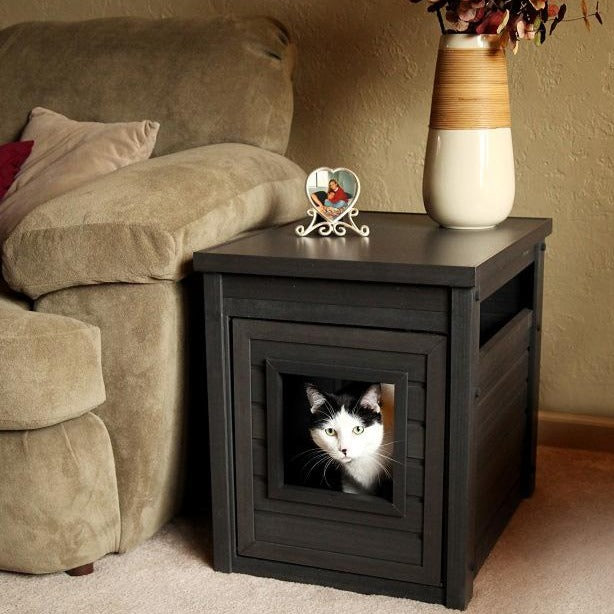
The Impact of Litter Box Cleanliness and Maintenance
The state of a cat’s litter box can greatly influence their use of it. A cleanup routine is vital. Cats reject foul-smelling or soiled litter boxes. Regular scooping is necessary for cleanliness. Consider a weekly full litter change. Use unscented, clumping litter for easier maintenance. Litter boxes should be in a quiet, private space. Avoid harsh chemicals that can deter cats from their box. Clean accidents outside the box with enzyme cleaners, not ammonia. Take notice if your cat suddenly avoids a well-maintained box. It may signal a health concern, requiring a vet visit.
Psychological and Behavioral Factors Affecting Litter Box Use
Cats’ psychological and behavioral aspects play a big part in litter box use. Unbeknownst to many pet owners, these factors can greatly affect a cat’s litter habits. Below are key psychological and behavioral issues that might cause a cat to miss their litter box:
Stress and Anxiety
Cats are sensitive creatures. They can feel stress from changes in their environment. New pets, moving houses, or even loud noises can upset them. This stress can cause them to urinate outside their litter box.
Territorial Marking
Cats mark their territory, especially if not neutered or spayed. This behavior can sometimes appear as missing the litter box. They may spray on walls or furniture to claim areas as their own.
Boredom or Lack of Stimulation
Cats need mental and physical stimulation. Without it, they can develop unwanted behaviors. This includes missing the litter box. Make sure your cat has plenty of toys and plays time.
Negative Litter Box Associations
Cats might link the litter box to bad experiences. If they’ve been startled or trapped while using it, they may avoid it. Keep the litter box area calm and accessible.
Behavior from Past Trauma
Past trauma can affect a cat’s litter box habits. Harsh training methods or negative experiences can cause avoidance. Approach litter training with patience and positivity.
Inconsistent Litter Box Cleaning
While not a medical issue, inconsistency in cleaning can lead to behavioral avoidance. Cats need a clean area for elimination. A dirty litter box can lead them to seek other places.
Understanding your cat’s behavior is key. Keep an eye on changes in habits and the environment. Address issues quickly to maintain good litter box use. You can speak to a vet or a cat behavioral specialist for help. With the right care, patience, and understanding, your cat’s litter habits can improve.
Importance of Litter Box Location and Setup
Ensuring the correct location and setup for a cat’s litter box is crucial. Cats need a spot that feels safe and private for their bathroom needs. A litter box placed in a high-traffic area can discourage use. Cats may avoid a box that’s too exposed or noisy. It’s ideal to position the box in a quiet corner where cats won’t be disturbed. Avoid areas near loud appliances or frequent foot traffic. Accessibility is key, so ensure there are no obstacles to the litter box. Remember to provide multiple boxes in a multi-cat household to prevent competition.
Each cat should have their own box plus one extra to avoid conflicts. The setup of the litter box can also affect its use. Some cats may reject a box if it has a lid or is too deep. Many prefer an open design that allows for easy entry and exit. Consider the size of your cat when choosing a box to ensure comfort. Keep in mind that changes to the litter box location or setup may be needed as your cat ages. Senior cats benefit from a box with low sides for easy access. Regular reviewing of the litter box environment is important for maintaining good habits. A well-chosen location and setup can make all the difference in preventing litter box mishaps.
Addressing Litter Box Size and Design Issues
When considering litter box issues, size and design are crucial. Large cats need bigger boxes. Indeed, cramped spaces can discourage cats from using the box. Assess your cat’s size and ensure the box is spacious enough for them to move and turn comfortably.
Choose the Right Size
A small box for a big cat spells trouble. Opt for a size that allows easy movement. Your cat shouldn’t struggle to fit or turn around inside the box.
Consider Design Features
Some cats dislike covered litter boxes. They may also reject a box with high sides if it’s hard to enter. An open design might work better in these cases.
Avoid Harsh Textures
Cats are sensitive to texture. Rough litter can deter them from using the box. Choose a litter that feels soft under their paws.
Keep Litter Depth Consistent
Too much or too little litter can be an issue. Maintain an even depth that allows for digging and covering.
Watch for Design Flaws
High-sided boxes help contain litter scatter. But, if your cat has mobility issues, such designs can hinder access. Consider an open tray or a box with one lower side for easy entry.
By observing your cat and considering these factors, you can address size and design issues effectively. This will encourage proper litter box use and prevent accidents.
Spaying or Neutering and Its Effect on Litter Box Habits
Proper litter box habits are key for a cat’s well-being. One common issue with litter box use is inappropriate elimination. This can be due to lack of spaying or neutering. These procedures can greatly impact your cat’s behavior and use of the litter box. Here’s how.
Hormones Drive Marking Behaviors
Hormones in cats can lead to unwanted litter box habits. Male cats may spray urine to mark territory. This can happen even near the litter box. Female cats may also display this behavior. Spaying or neutering can reduce these instincts.
Reduces the Urge to Roam and Mark
Unneutered males often seek mates. This can include leaving urine marks as they roam. If fixed, this behavior typically decreases. Cats become less inclined to mark or roam far from the litter box.
Less Aggression Equals Better Box Use
Hormones can cause aggression between cats. This aggression can lead to litter box avoidance. By spaying or neutering, you may see a decrease in this aggressive behavior. Peaceful cats are more likely to follow proper litter box routines.
Improvements in Overall Litter Box Habits
Neutered cats often show better litter habits overall. With hormones in check, they focus less on marking. Instead, they use the litter box more consistently. It’s vital to fix cats early. This helps develop good habits from the start.
In conclusion, spaying or neutering plays a big part in litter box behavior. It can prevent territorial marking and lessen aggression. With these procedures, cats are more likely to use the litter box correctly. Always consult with a vet to decide the best timing for your cat. Early fixing can set the stage for a lifetime of good litter box use.
Solutions and Interventions for Inappropriate Elimination
When cat miss the litter box, it can be frustrating. Effective solutions are necessary to get back on track. Here’s a step-by-step approach to tackling this issue.
Identify the Underlying Cause
First, figure out why your cat is avoiding the litter box. Check for medical issues like UTIs or arthritis. Look at environmental factors too, such as litter box cleanliness or placement.
Consult Your Veterinarian
Always consult a vet if your cat suddenly changes their bathroom habits. They can rule out health problems and provide medical advice.
Improve Litter Box Conditions
Make sure the litter box is clean and inviting. Scoop it daily and change the litter regularly. Consider unscented litter and an open-box design if your cat prefers it.
Address Behavioral Issues
If stress or behavior is the problem, create a calm environment. Provide toys and playtime for stimulation. Use positive reinforcement to encourage litter box use.
Try Different Locations and Boxes
Sometimes, moving the litter box to a secluded spot helps. In multi-cat homes, provide several boxes. This prevents competition and gives each cat their own space.
Revisit the Litter Box Design
Your cat might need a larger box or one with lower sides. Give them plenty of room to move and turn inside the box.
Consider Spaying or Neutering
If territorial marking is an issue, spaying or neutering may help. It can reduce the urge to mark outside the litter box.
Be Consistent and Patient
Stick with a routine for cleaning and maintaining the litter box. Have patience as your cat adjusts. It might take time, but consistency is key.
By identifying the cause and taking the right steps, most cats will return to proper litter box use. Remember to stay attentive to your cat’s needs and behavior.
